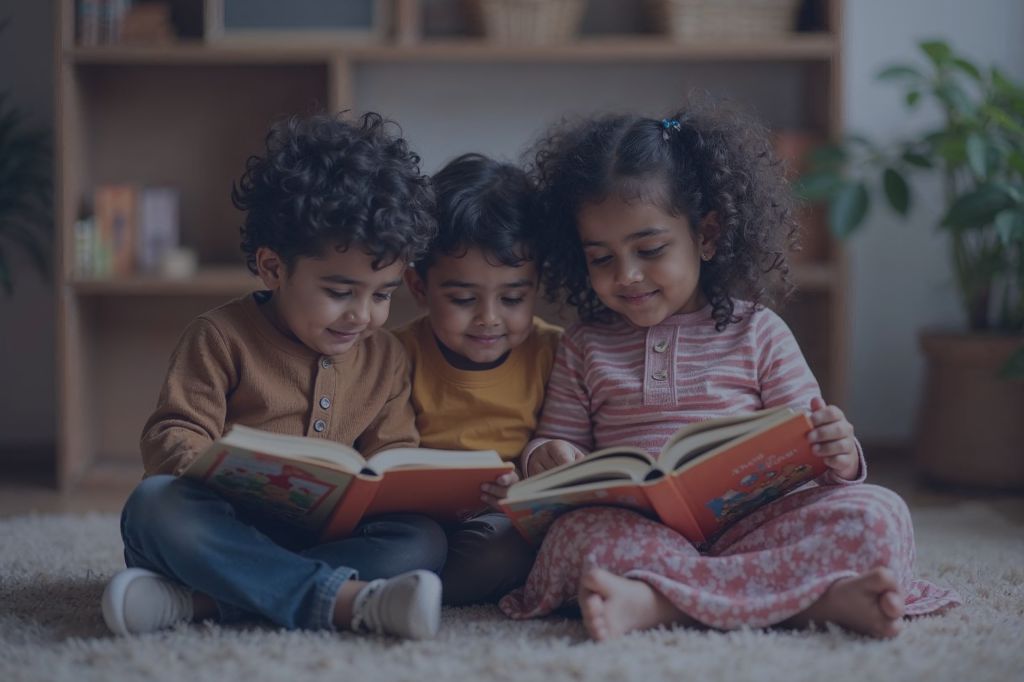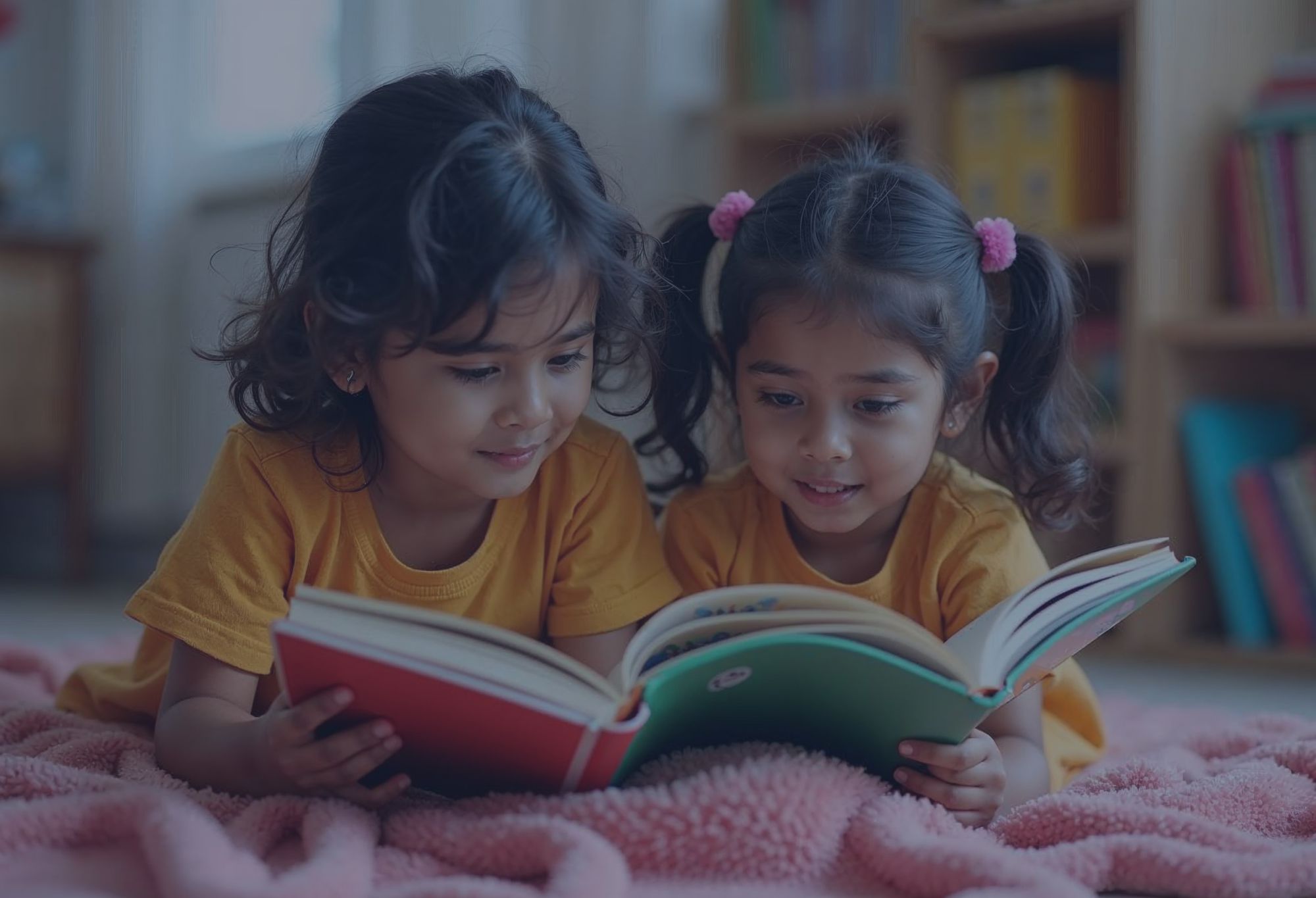At Aikya World School, we believe in the power of reading as a cornerstone of a child’s educational journey. In today’s fast-paced digital world, it’s easy to get distracted by screens and interactive media, but books remain one of the most important tools for a child’s development. Whether it’s a storybook, a picture book, or an educational text, reading offers a myriad of benefits that go beyond just enhancing vocabulary. Let’s explore how reading plays a vital role in shaping young minds and why it is so crucial for children at every stage of their growth.
- Cognitive Development: Strengthening Brain Power
Reading is a workout for the brain. It enhances cognitive abilities such as memory, comprehension, and problem-solving skills. As children engage with texts, they learn to absorb and process information, make connections between different ideas, and improve their reasoning abilities. This process sharpens the mind, much like physical exercise strengthens muscles. The more a child reads, the stronger their brain becomes in processing complex ideas and making decisions.
- Language and Vocabulary Growth
One of the most immediate and visible benefits of reading is language development. When children read, they encounter new words, phrases, and sentence structures that expand their vocabulary. Studies show that children who read regularly tend to have a better grasp of grammar, pronunciation, and language syntax. This improvement in language skills has a direct impact on their ability to communicate clearly and effectively, both in writing and speaking. By reading diverse types of texts, children also learn to appreciate different writing styles, tones, and vocabularies.
- Enhanced Imagination and Creativity
Books allow children to escape into worlds beyond their own. They can travel to far-off lands, meet fantastical creatures, and experience different cultures and perspectives—all from the comfort of their home or classroom. This imaginative exploration fosters creativity, as children visualize the scenes and characters described in the book, often imagining their own scenarios and endings. Creative thinking developed through reading encourages innovation, problem-solving, and adaptability in real-life situations.
- Emotional Development and Empathy
When children read stories about characters facing challenges, triumphs, or personal growth, they learn to understand and navigate their own emotions. Fiction, especially, helps children see the world through the eyes of others, encouraging empathy. By identifying with characters, children learn to appreciate diverse perspectives, fostering emotional intelligence and social awareness. This can help them build better relationships, manage their emotions, and respond to social situations with greater sensitivity and understanding.
- Improved Focus and Concentration
In today’s world, attention spans are shrinking, largely due to the constant stimulation provided by digital devices. Reading, however, requires focus and concentration. When children read a book, they are fully immersed in the material, which helps to build their attention span and ability to concentrate for extended periods. This skill is critical not just for academic success but for personal development as well, as it teaches children how to stay engaged with tasks, problem-solve, and resist distractions.

- Academic Success and Performance
The benefits of reading extend beyond language arts and literacy. Children who read regularly tend to perform better in all subjects, including math, science, and social studies. The comprehension and analytical skills honed through reading contribute to a deeper understanding of all academic content. Furthermore, students who read often develop a love for learning that enhances their engagement with all areas of study. Reading also improves writing skills, as children gain exposure to well-constructed sentences, varied sentence structures, and different writing techniques.
- Building Stronger Parent-Child Relationships
Reading can also be an excellent bonding activity. When parents or caregivers read with children, it creates a shared experience that strengthens relationships. Shared reading encourages communication and provides opportunities to discuss the material, ask questions, and exchange ideas. This not only reinforces the child’s learning but also helps develop a lifelong love of books and reading. For parents, it’s a chance to model good reading habits and demonstrate the importance of learning and curiosity.
- Promotes Lifelong Learning
Children who develop a love for reading early in life are more likely to become lifelong learners. As they grow older, they will continue to seek out books and other reading materials to expand their knowledge and keep up with the world around them. Reading is a gateway to continuous learning and personal growth, fostering an inquisitive and open-minded attitude that benefits them in both personal and professional life.
- Stress Reduction and Relaxation
Reading is a great way for children to unwind and relax. Immersing themselves in a good book can provide an escape from the stresses of school, social situations, or daily life. Studies have shown that reading helps reduce stress and anxiety, helping children to calm their minds and find peace in the stories they read. It’s a great tool for emotional regulation, especially for children who may struggle with managing feelings of anxiety or overwhelm.
- Better Social Skills
As children grow older, they will have more opportunities to discuss books with their peers, whether in a classroom setting or in informal social groups. This can improve their social skills as they learn how to articulate their thoughts, express opinions, and engage in discussions. Furthermore, reading about different cultures, lifestyles, and historical periods broadens their worldview, helping them develop greater respect and understanding for diversity.

